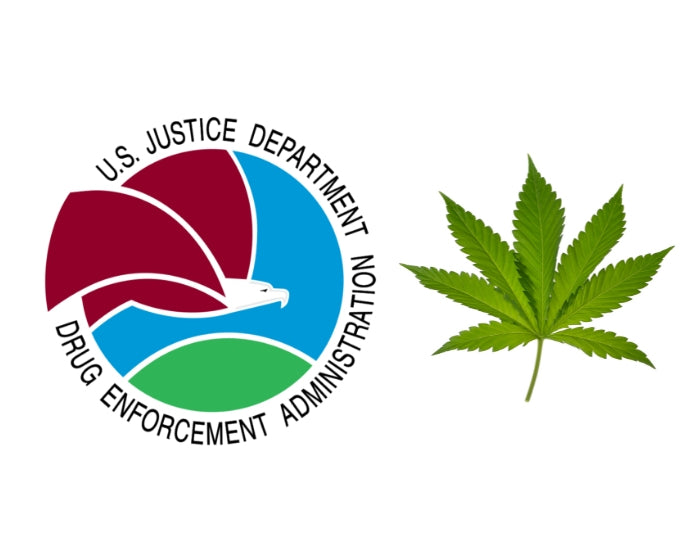A recent position paper offered by industry leaders fails to provide a sustainable and ultimately successful change in direction for the underutilized and versatile crop.

The hemp industry is at a pivotal crossroads this summer. Plantings, yields, prices, and profits are at an all-time low for the crop that was the toast of the agricultural and alternative plant medicine worlds just five years ago. With the passage of the 2018 Farm Bill, hemp was removed from the Controlled Substances List, and a new market sector was born. Almost overnight, farmers began cultivating the plant, which led to the manufacture of new and lucrative hemp-derived products, most notably CBD (Cannabidiol).
Even though the highly versatile hemp plant is capable of providing products ranging from animal and human food to bioplastics and carbon-capturing building materials, most of the focus and downright obsession over the crop almost exclusively surrounds the manufacture and sale of the somewhat enigmatic yet massively profitable, CBD. According to a Market Research Future (MRFR) report, CBD's market size was valued at $9.1 billion in 2021 and is expected to surpass $59.3 billion by 2030.
However, the industry's singular focus on dollar signs generated by CBD could harm the long-term growth of the overall hemp market. As first reported by HempToday, a new position paper generated by industry leaders concerning how the 2023 Farm Bill should address the future of hemp may be placing too much emphasis on CBD and not enough energy on other important offerings of the crop.
The Farm Bill is an almost $1 trillion spending package that funds agriculture and food programs ranging from crop subsidies to nutrition assistance programs, most notably SNAP or Food Stamps. With Congress more divided than ever, very few spending programs are almost guaranteed to receive bipartisan approval. However, the Farm Bill is one of those rare unifying packages due to a large block of farm-reliant states represented in Congress.
Following the 2018 iteration and the subsequent hemp explosion, the sector has come crashing back down to earth. For example, revenue from flowers grown for CBD plunged last year by more than 70% compared to 2021. Likewise, income from hemp fiber dropped more than 30%, and revenue generated by hemp grain dipped 40% in 2022, according to USDA's year-on-year figures.
So one of the big hopes for many hemp industry advocates and stakeholders is that this year's bill can help address some of the more dire issues facing the young and volatile market.
In addition to the dismal financial statistics, the hemp industry is also dealing with the political and social fallout created by the largely unregulated synthetic hemp-derived cannabinoid product sector. The leading cause for concern is the massive proliferation of products containing synthetically derived delta-8 THC. Delta-8 has been linked to the death of a toddler in Virginia and a host of other incidents where individuals (some minors) fell ill after consuming items containing the variant.
Despite all of these pressing issues staring down the industry, the paper entitled "Hemp Industry Priorities for the 2023 Farm Bill" focuses almost entirely on how to fix all the problems plaguing the CBD sector, much to the detriment of other crucial areas of the hemp industry reeling from the substantial contraction.
The authors call for the FDA to step up and do its job and create meaningful regulations for CBD as a food and dietary supplement to provide some much-needed guidance and stability for the largely unregulated market. Unfortunately, while a clear set of guidelines would go a long way in protecting consumers against some of the many potentially unsafe CBD products currently on shelves and establish a clear playing field for farmers and manufacturers, the FDA has already expressed its unwillingness to regulate CBD.
Other issues the paper details include:
- Increased USDA funding for state hemp programs
- Opening up subsidies for hemp that other crops already enjoy
- Repealing a ban on formerly convicted felons operating in the industry
- Promotion of additional research
- Allowing hemp grain to be used as animal feed
- A general reduction in red tape
- Increase the allowable delta-9 THC level in hemp from 0.3% to 1.0%
Moreover, while all of these items are clearly in the best interest of the hemp industry, the overriding push for their inclusion leads back to the overall theme of an unbalanced emphasis on CBD.
There is zero mention of the delta-8 debacle, nor is there any mention of the environmental benefits provided through hemp cultivation. Growing hemp literally heals the planet. Along with direct carbon capture achieved through farming, products such as hempcrete provide building materials that result in permanent carbon lockup. Additionally, hemp cultivation is healthy for the soil.
Furthermore, the paper fails to take the opportunity to mention the potential of incentivizing farmers to grow hempseed food through the Farm Bill. Currently, the domestic market is served almost entirely through imports and the promotion of international trade agreements. The word "food" is only mentioned once in the paper, and that is only in the context of dietary supplements and beverage additives made from, of course, CBD.
No one is arguing the importance of CBD as it pertains to the future success of the hemp industry. However, the Farm Bill only comes up for renewal every five years. With so much riding on its passage and the critical need to shore up all aspects of the burgeoning hemp sector within the legislation, such a short-sighted vision could end up having devastating long-term effects for the tens of thousands of growers, manufacturers, and retailers who have become economically reliant on the strength and vitality of the entire hemp industry and all it has to offer.






































